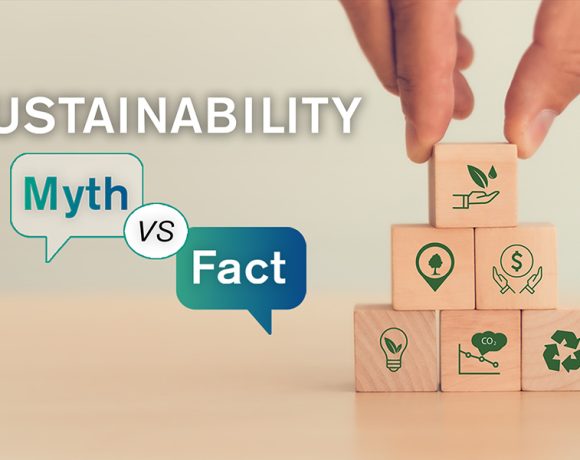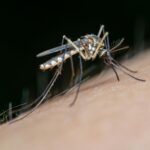5th Anniversary Of The Great Global Cleanup Is On April 22

Earth Day 2024 Theme Is ‘Planet Vs Plastics’
EARTHDAY.ORG, the leading global organisation dedicated to environmental protection, is celebrating a significant milestone—the fifth anniversary of The Great Global Cleanup on April 22, 2024, coinciding with Earth Day 2024.
This celebration is a testament to the organisation’s long-standing commitment to environmental protection and a call for greater participation.
Earth Day is not just a local event but a global movement. It’s an annual event on April 22 to demonstrate support for environmental protection. First held on April 22, 1970, it now includes a wide range of events coordinated globally by EARTHDAY.ORG, with over one billion people in over 193 countries participating.
The official theme for Earth Day 2024 is ‘Planet vs Plastics.’
The Great Global Cleanup initiative is a global movement and calls for individual action. International partnerships are making a significant difference in the battle against plastic pollution.
By joining The Great Global Cleanup initiative, one becomes part of a global community and makes a significant personal impact. One’s actions also contribute to permanently eliminating plastics and advocate for a 60% reduction in plastic production by 2040.
Washington, United States-based EARTHDAY.ORG calls on individuals, businesses, governments, and NGOs to unite for a monumental environmental challenge. The organisation aims to commemorate this milestone on April 22 by collectively registering 5,000 cleanups on The Great Global Cleanup Map.
EARTHDAY.ORG has announced three flagship cleanups for 2024. These initiatives are a testament to the organisation’s commitment and ambition to eliminate plastics and protect our planet.
Collaborating with The Malaysian Humanitarian Foundation, the organisation will lead the world’s largest cleanup event this Earth Day, mobilising over 100,000 volunteers.
Additionally, partnerships with Maqoor, an environmental movement in Armenia, facilitated over ten cleanups across Yerevan on April 20 in celebration of Earth Day 2024 and Armenia’s ecological efforts.

Continuing its collaboration with Kanu Hawaii for the second consecutive year, EARTHDAY.ORG is globalising last year’s efforts. Together, they aim to accomplish the world’s most extensive dive cleanup in support of the Pledge to Our Keiki—a commitment to sustainable living and reducing human environmental impact.
Pivotal Moment
Michael Karapetian, The Great Global Cleanup Coordinator at EARTHDAY.ORG, emphasised the significance of 2024 as a pivotal moment for positive change.
“From witnessing how plastics wreak havoc on us and the environment firsthand to joining the Planet vs Plastics fight, the actions you take carry significant impact,” he stated.
“We are elevating The Great Global Cleanup efforts to unprecedented heights, recognising every piece of trash as evidence to fuel systematic change, aiming for a future where cleanups are obsolete. Join us today [April 22, 2024] in making a tangible difference for our planet!”
The Great Global Cleanup campaign urges governments, businesses, and citizens to create cleaner communities. Your
By participating, one not only contributes to a cleaner environment but also joins a global movement for change. Cleanup partners can register events and invite volunteers to their cleanup via The Great Global Cleanup Map.
Citizens are encouraged to search the map for nearby cleanups or create individual or group cleanups near where they live and work. The map is regularly updated to ensure everyone has the opportunity to make a difference in their community.
The ‘Planet vs. Plastics campaign brings together students, parents, businesses, governments, churches, unions, individuals, and NGOs to demand an end to the plastics scourge.
EARTHDAY.ORG has outlined four key goals to achieve the targeted reduction by 2040:
- Raising Public Awareness: The campaign promotes widespread awareness of plastic’s detrimental effects on human, animal, and biodiversity health. It calls for more research on plastics’ health implications and commits to releasing all information regarding its impact to the public.
- Phasing Out Single-Use Plastics: EARTHDAY.ORG aims to rapidly phase out all single-use plastics by 2030. It advocates for this commitment to be enshrined in the United Nations Treaty on Plastic Pollution, with implementation slated 2024.
- Addressing Fast Fashion: The campaign demands policies to end the proliferation of fast fashion and the excessive use of plastic within the industry.
- Investing in Innovation: EARTHDAY.ORG emphasises investing in innovative technologies and materials to create a plastic-free world.
Kathleen Rogers, President of EARTHDAY.ORG, underscored the urgency of the campaign: “The Planet vs. Plastics campaign is a call to arms, a demand that we act now to end the scourge of plastics and safeguard the health of every living being upon our planet.”
Plastics pose an environmental threat and a grave danger to human health. As they break down into microplastics, they release toxic chemicals into food and water sources, permeating our air.
The scale of plastic production has reached alarming levels, with more plastic being produced in the last decade than in the entire 20th century.
Denis Hayes, Chair Emeritus of EARTHDAY.ORG, highlighted the multifaceted dangers of plastics. From toxic emissions during production to lethal combustion and the suffocation of sea life, plastics present a pervasive and hazardous blight at every stage of their lifecycle.
500 Billion Plastic Bags
The statistics surrounding plastic consumption are staggering. Over 500 billion plastic bags were produced worldwide last year, with a mere 5% recycled.
Similarly, the fast fashion industry churns out over 100 billion garments annually, contributing to the overconsumption and disposability of fashion while perpetuating social injustices such as exploitative labour practices.
In response to these challenges, EARTHDAY.ORG seeks decisive action from the International Negotiating Committee on Plastic Pollution (INC). It calls for an end to the production of single-use plastics by 2030 and advocates for implementing the precautionary principle and the polluter pays doctrine in the Global Plastics Treaty.
Featured image: The scale of plastic production has reached alarming levels. Credit: EARTHDAY.ORG











